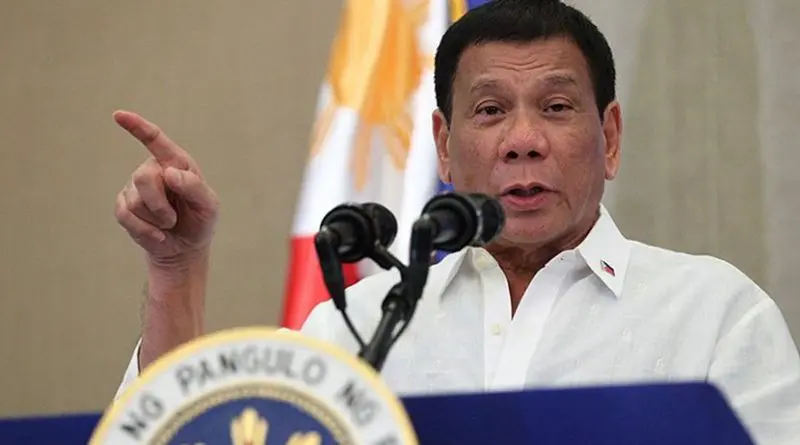Philippines Withdraws From International Criminal Court
By UCA News
By Joe Torres
President Rodrigo Duterte has announced the Philippines’ immediate withdrawal from the International Criminal Court (ICC) following “outrageous attacks” by the court and United Nations officials.
Duterte, who is under scrutiny by the international court over his deadly war on drugs, claimed that there is a “concerted effort” to undermine his administration.
He accused U.N. special rapporteurs and ICC investigators of painting him as a “ruthless and heartless violator of human rights who allegedly caused thousands of extrajudicial killings.”
The president complained about what he said were “baseless, unprecedented and outrageous attacks on my person and against my administration, engineered by officials of the United Nations.”
He also said there is an “attempt by the [ICC] special prosecutor to place my person within the jurisdiction of the [international court].”
“All these acts are in violation of due process and constitutional presumption of innocence,” said the president.
He said the treaty, also known as the Rome Statute, which the Philippines signed on Aug. 23, 2011, is not “effective nor enforceable” because it was not published in the Official Gazette.
The Rome Statute established the ICC when it was adopted at a diplomatic conference in Rome in 1998. It entered into force on July 1, 2002.
As of October 2017, 123 countries, including the Philippines, were party to the treaty, which established four core international crimes: genocide, crimes against humanity, war crimes, and the crime of aggression.
Under the statute, the ICC can only investigate and prosecute the crimes in situations where states are “unable” or “unwilling” to do so themselves.
“An international law cannot supplant, prevail, or diminish a domestic law,” said Duterte, who is also a lawyer.
He also claimed that the drug-related killings under his administration were not genocide, war crimes, or crimes against humanity, but a result of legitimate police operations.
Is Duterte afraid of the ICC?
A day after the president’s announcement, the country’s Catholic bishops said Duterte cannot just set aside the Philippines’ commitment to human rights.
“The Philippines is not Duterte,” said Manila Auxiliary Bishop Broderick Pabillo, head of the Episcopal Commission on the Laity.
The prelate said the president’s decision only showed that there might be basis for the allegations leveled against him.
“[He] is afraid of accountability. Duterte should be investigated,” said the prelate.
Bishop Arturo Bastes of Sorsogon said the president might be “simply afraid” of a possible conviction for his “crimes against humanity … [that] will shame him throughout the world for all times.”
“His withdrawal from the Rome Statute is an act of cowardice that makes his name more infamous,” added the prelate.
Franciscan priest Pete Montallana said only the truth can set Duterte free. “Let him be courageous enough to face investigation to prove that he has nothing to hide,” he said.
Sister Mary John Mananzan, a Benedictine nun who helped organize the Movement Against Tyranny opposition group, said Duterte’s withdrawal from the ICC was “cowardly.”
Activist priest Robert Reyes said the president’s decision is “clearly an act of open defiance not only against the ICC but what it represents.”
Bishop Ruperto Santos of Balanga, however, said the Philippines is sovereign and independent and whoever commits a crime “should be tried here with our people.”
The ICC, through prosecutor Fatou Bensouda, announced last month that she would look into the drug-related killings.
The prosecutor’s analysis of “drug war” crimes could result in a formal ICC investigation if there is proof violations amount to crimes against humanity, and the absence of justice in national courts.
Human Rights Watch has claimed that about 12,000 suspected drug users and peddlers have been killed in Duterte’s “all-out war” against narcotics that started in mid-2016.
Mark Saludes contributed to this report.

